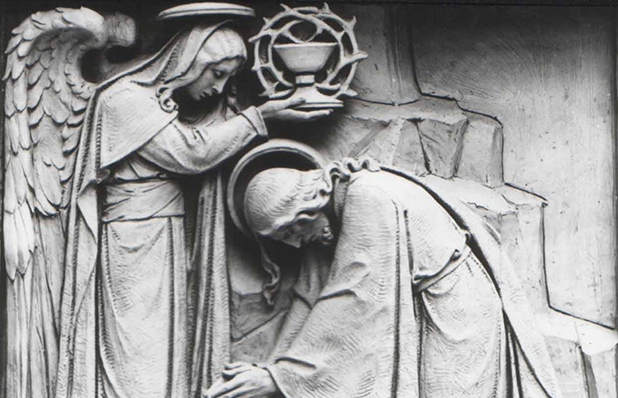Christ's Passion: Gethsemane

In this week's sermon text, we begin that portion of the Gospels which the church has called the Passion of Christ. The Passion begins in the Garden of Gethsemane and ends when Jesus cries from the cross, “It is finished. Father, into your hands I commit my spirit.”
We use the word “passion” today to mean any strong emotion or feeling. Perhaps a strong feeling of romantic or sexual love is the first thing that pops into your head when you think about passion. But the original meaning of the word “passion” is “suffering.” It comes from the Latin word for suffering, “passio.” So for centuries, the church has used the term “The Passion” to refer to the suffering of Jesus Christ.
The Passion of Christ begins in the Garden of Gethsemane, where Jesus went to pray with his disciples after the Last Supper. In the Garden he was subjected to onslaught of sudden anguish. Jesus certainly knew all along that he was going to the cross to die. But when he was in Gethsemane the fullness of what that death would mean, and the terrible extent of the suffering he would endure suddenly became acutely clear to him. Jesus fully understood the extent of the suffering he was about to endure.
As Christians, it is distressing to see the Lord we love go through such anguish. And yet we find a degree of comfort and encouragement in what we see in Gethsemane. Jesus understands our anguish. He knows what it’s like to go through a severe crisis. So when we come to Jesus with our anguish, we do so knowing that he understands what deep anguish is.
But outside of Christianity, the idea that the Eternal Son of God would struggle like this, is just impossible. There is just no way someone could claim to be God with us, then struggle like this. Islam finds the weakness of the crucifixion so intolerable that, in the Quran, it is said that God substituted someone else for Jesus on the cross. Outside of Christianity, great spiritual heroes just don’t break down like this in the face of death.
But Jesus was facing something far more terrifying than physical and emotional pain and a slow, agonizing death. The reason Jesus staggered is because He began to taste the cup of God’s wrath against all sin and injustice that He was about to drink. God brought Jesus to the mouth of the raging flame of his wrath. He was giving his Son a foretaste of the wrath of God he would endure on the cross. Before the nails would be driven into Jesus’ hands and feet, he was given the opportunity to walk away. But Jesus didn’t walk away. He drank of the cup of God’s wrath for us, knowing exactly what he was going to endure. Once He resolved to freely give Himself to it, the rest was not anywhere as difficult. Jesus came to do what none of us could do for ourselves—to live the life we should have lived and die the death we should have died.
More in Christ First Blog
January 13, 2022
Sunday Morning Preparation Part II: Unveiling Our HeartsJanuary 13, 2022
Preparing for Sunday Mornings Part IJanuary 29, 2020
Be Like God